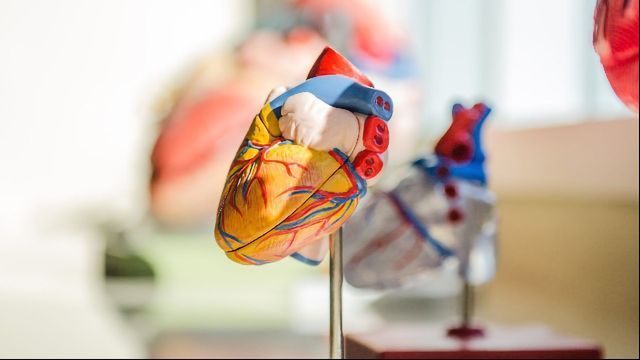Trending News
News

News
Protein Allows Salmonella To Swim Straight
Salmonella use a “run-and-tumble” method of movement, including random direction changes, but how they move within the gut is not well understood. Now scientists believe they have identified a protein, McpC, that allows the bacteria to swim straight when they are ready to infect cells.

News
Study Reveals How Cardiac Stem Cells Replenish Damaged Tissues
In a new study, scientists at Okayama University isolated cardiac stem cells and assessed their potential use as regenerative therapy in young patients with cardiac defects. The team not only showed the effectiveness of the cells in replenishing damaged tissues, but also revealed how this happens.

News
Exploring Metabolic Features of Recurrent Major Depressive Disorder
Researchers at University of California San Diego School of Medicine, in collaboration with Dutch scientists, have found that certain metabolites — small molecules produced by the process of metabolism — may be predictive indicators for persons at risk for recurrent major depressive disorder.

News
DNA in Water Used To Uncover Genetic Diversity of Pesky Fish
In a proof-of-principle study, Cornell researchers describe a new technique in which they analyzed environmental DNA – or eDNA – from water samples in Cayuga Lake to gather nuanced information about the presence of these invasive fish.

News
Gut Microbes May Help and Hinder Anorexia Sufferers
Anorexia is a debilitating eating disorder, and was long thought to be purely psychological. New research is challenging this by revealing that gut microbes may have a significant role in anorexia. A recent review examines the evidence that gut microbes can contribute to anorexia and may provide a new method to treat it.

News
Unmasking the Architect of the Brain's Columns
Brain cells often cluster and grow together creating three-dimensional columns. While this pillar-like pattern of neurons is established, the exact mechanism behind its formation is still elusive. New research explains how molecules in the brain work in conjunction to create these architectural marvels of the brain.

News
Investigating the Role of a Key Metabolic Pathway in Melanoma
Disrupting the metabolic pathway involved in the initiation, growth and progression of melanoma could lead to the development of new treatments for melanoma, according to new research published in PLoS One.

News
Immune Responses in Chronic Diseases May Be Driven by Tissue Stiffness
Research shows that stiffness in our tissues causes tension in our cells that impacts the innate immune system by upping its metabolism. The findings suggest the cellular tension likely sets off an inflammatory loop that contributes to the development of chronic diseases of aging.

News
Stem Cells Use a Piston-Like Engine To "Drive" to Their Destinations
Researchers have discovered the surprising propulsion system that enables these regenerative cells to migrate through surrounding tissue to repair damage.

News
Biomarkers Discovered That Can Help To Predict Cell Fate
A set of biomarkers not traditionally associated with cell fate can accurately predict how genetically identical cells behave differently under stress, according to a UT Southwestern study.
Advertisement




